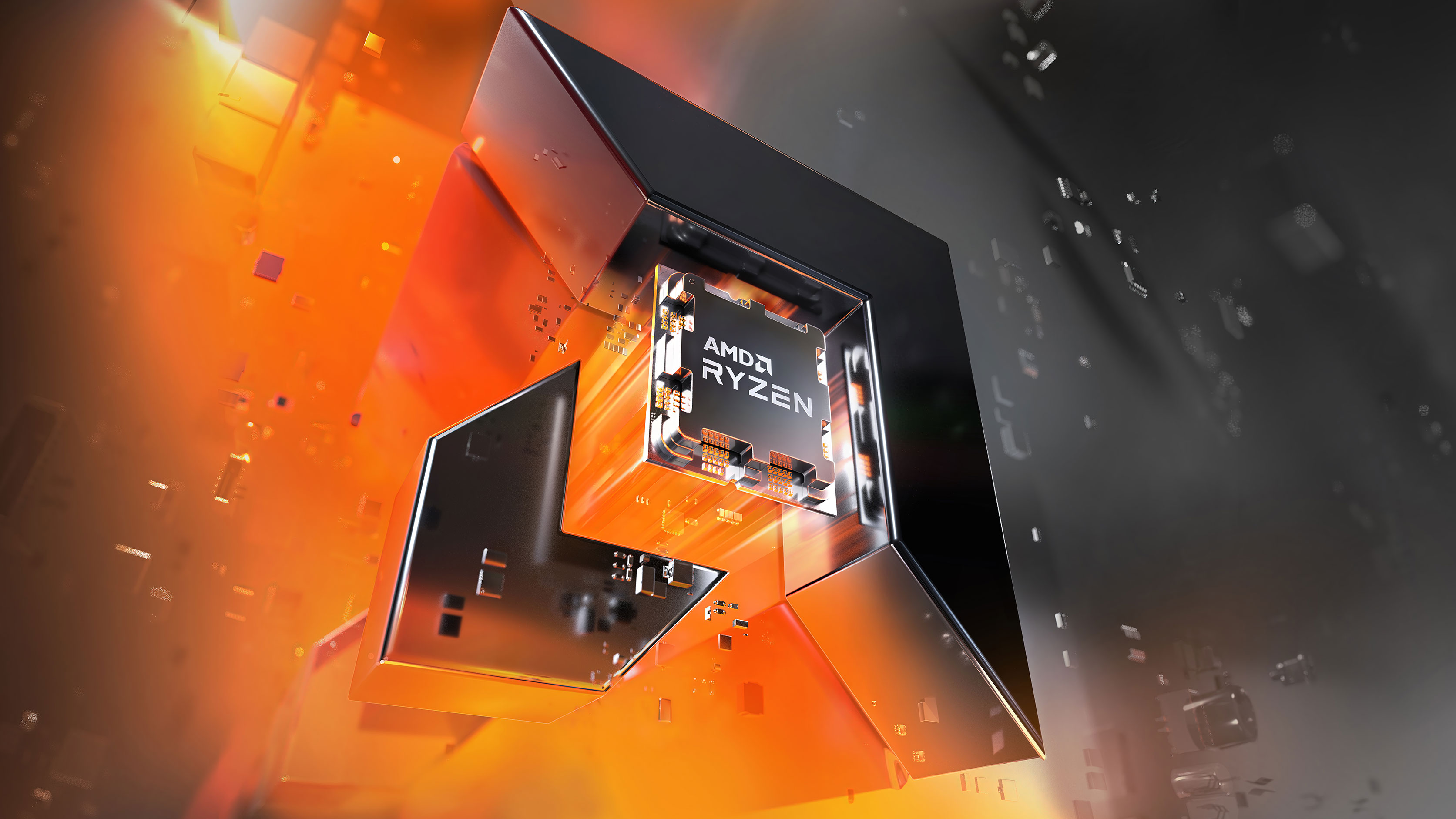Leaked Ryzen 7 8700G and Ryzen 5 8600G benchmarks are impressive — CPU performance slightly behind Ryzen 7000 non-X SKUs
APUs tend to be a little slower.

Geekbench 6 results for AMD's upcoming Ryzen 7 8700G and Ryzen 5 8600G APUs have surfaced, revealing performance just behind that of Ryzen 7000 non-X SKUs (via @Olrak29_). This is largely in line with expectations based on the specifications of the Hawk Point APUs, which are extremely similar to the Raphael chips used in the Ryzen 7000 series. As ever with unofficial benchmarks, take the news with a pinch of salt until they can be verified.
The Ryzen 8000G series is based on the Phoenix and Phoenix 2 chips which debuted in the Ryzen 7040 series. The top-end 8700G and 8600G feature the faster NPU that 8040 series Hawk Point APUs sport. Compared to the chiplet-equipped Raphael design that powers desktop Ryzen 7000 CPUs and high-end Ryzen 7045 laptop CPUs, the 8000G series is generally a little behind in frequency and has half the L3 cache per core.
We've taken the leaked benchmark results and compared them to the official scores for the Ryzen 7 7700 and Ryzen 5 7600, which are very similar to the 8700G and the 8600G respectively.
| Row 0 - Cell 0 | Ryzen 7 8700G | Ryzen 7 7700 | Ryzen 5 8600G | Ryzen 5 7600 |
| Single-Core Score | 2,720 | 2,845 | 2,474 | 2,734 |
| Multi-Core Score | 14,326 | 14,692 | 11,453 | 12,238 |
Compared to their non-X counterparts from the Ryzen 7000 series, the 8700G and 8600G are just a tad behind in both the single- and multi-core results. Most of this performance difference is likely down to frequency as Geekbench just isn't that sensitive to cache, which is significantly smaller on the 8000G APUs. That smaller cache is likely to impact performance in games, meaning even the 8700G might struggle to get to those super high framerates in the mid 100s or more.
| CPU | Arch. | Price | Cores/ Threads (Zen 4 + 4c) | Base/ Boost Freq. (Zen 4 cores) | Base/ Boost Freq. (Zen 4c cores) | TDP | L3 (MB) | GPU / Cores | GPU Freq. (MHz) |
| Ryzen 7 8700G | Zen 4 | $329 | 8 / 16 | 4.2 / 5.1 | N/A | 65W | 24 | Radeon 780M - 12CU | 2900 |
| Ryzen 7 5700G | Zen 3 | $359 | 8 / 16 | 3.8 / 4.6 | N/A | 65W | 16 | RX Vega 8 | 2000 |
| Ryzen 5 8600G | Zen 4 | $229 | 6 / 12 | 4.3 / 5.0 | N/A | 65W | 22 | Radeon 760M - 8 CU | 2800 |
| Ryzen 5 5600G | Zen 3 | $259 | 6 / 12 | 3.9 / 4.4 | N/A | 65W | 16 | RX Vega 7 | 1900 |
| Ryzen 5 8500G | Zen 4 + Zen 4c | $179 | 6 / 12 (2 + 4) | 4.1 / 5.0 (3.5 GHz global base) | 3.2 / 3.7 | 65W | 22 | Radeon 740M - 4CU | 2800 |
| Ryzen 3 8300G | Zen 4 + Zen 4c | OEM only | 4 / 8 (1 + 3) | 4.0 / 4.9 (3.4 GHz global base) | 3.2 / 3.6 | 65W | 12 | Radeon 740M - 4CU | 2600 |
| Ryzen 3 5300G | Zen 3 | OEM only | 4 / 8 | 4.0 / 4.2 | N/A | 65W | 8 | RX Vega 6 | 1700 |
Ryzen 8000G APUs also lack support for PCIe 5.0, which means being unable to run current generation PCIe 5.0 SSDs at full speed, and instead will run at PCIe 4.0 speeds, which is limited to about 8GB/s.
However, 8000G APUs have two features that could definitely make up for their slightly lower CPU performance and lack of PCIe 5.0. The Radeon 700M integrated graphics inside 8000G series APUs are much faster than those used for Ryzen 7000 CPUs; even the relatively small Radeon 740M in the low-end Ryzen 3 8300G should smoke the iGPU in any Ryzen 7000 desktop chip.
Finally, the higher-end 8700G and 8600G come with the Ryzen AI neural processing unit, which accelerates AI workloads. That feature probably won't appeal to the majority of people as much as integrated graphics will, but nevertheless there is a growing AI trend, evident at the recent CES. The AI neural processing unit will make the 8700G and 8600G cheaper ways to build desktops with AI hardware.
Get Tom's Hardware's best news and in-depth reviews, straight to your inbox.

Matthew Connatser is a freelancing writer for Tom's Hardware US. He writes articles about CPUs, GPUs, SSDs, and computers in general.
-
usertests As expected, the 8700G has most of the performance of the Ryzen 7 7700, but with a fast iGPU and a little XDNA1 on the side. And then it will perform worse in some games because of the cache reduction.Reply
Maybe the most interesting part will be the DDR5 tests. -
pug_s I wonder if the power consumption is lower in the 8000 series compared to the same 7000 series considering that it is a monolithic die.Reply -
Notton I think the lack of PCIe 5.0 is fine.Reply
It's a "budget" solution, and sticking to PCIe 4.0 will cut unnecessary costs.
Why would anyone even consider using a Gen5 NVMe SSD with an APU?